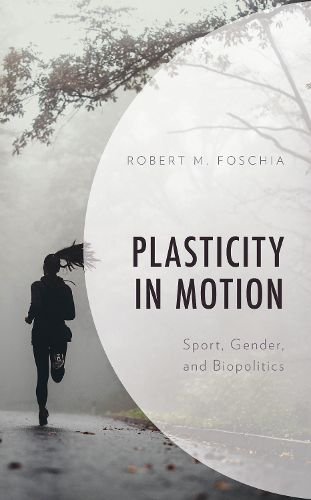Readings Newsletter
Become a Readings Member to make your shopping experience even easier.
Sign in or sign up for free!
You’re not far away from qualifying for FREE standard shipping within Australia
You’ve qualified for FREE standard shipping within Australia
The cart is loading…






Plasticity in Motion: Sport, Gender, and Biopolitics argues that sport has a transformative power that, when engaged with habitually, can create bodies with the athletic ability to succeed at the incredible performances that captivate modern sports audiences. Robert M. Foschia draws heavily from the influential and extensive work of Catherine Malabou on plasticity - the ability to shape and form - and similarly argues that transformation is not always positive or infinite, with the potential for accidents, injuries, and excommunications. However, sport as a discursive space often precludes any mention of these negative transformations, asserting itself as pure potential and becoming, often to the exclusion of the feminine. What occurs if the feminine enters into this space? Foschia intentionally integrates the feminine back into hypermasculine discussions of sport, opening a new realm of possible transformations to the ways we play, watch, and think about sports. Scholars of communication, media studies, gender studies, rhetoric, and sports will find this book particularly useful.
$9.00 standard shipping within Australia
FREE standard shipping within Australia for orders over $100.00
Express & International shipping calculated at checkout
Plasticity in Motion: Sport, Gender, and Biopolitics argues that sport has a transformative power that, when engaged with habitually, can create bodies with the athletic ability to succeed at the incredible performances that captivate modern sports audiences. Robert M. Foschia draws heavily from the influential and extensive work of Catherine Malabou on plasticity - the ability to shape and form - and similarly argues that transformation is not always positive or infinite, with the potential for accidents, injuries, and excommunications. However, sport as a discursive space often precludes any mention of these negative transformations, asserting itself as pure potential and becoming, often to the exclusion of the feminine. What occurs if the feminine enters into this space? Foschia intentionally integrates the feminine back into hypermasculine discussions of sport, opening a new realm of possible transformations to the ways we play, watch, and think about sports. Scholars of communication, media studies, gender studies, rhetoric, and sports will find this book particularly useful.